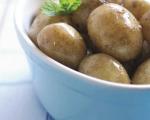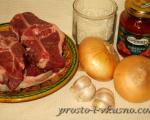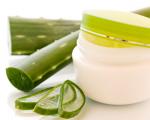The benefits and harms of fresh and dried chokeberry
Chokeberry (aronia, chokeberry, or simply black rowan) is a small shrub from the Rosaceae family. It comes from Canada, where wild chokeberry species occupy vast territories. Even the Indians, long before the advent of European colonialists, treated burns with chokeberry juice and created recipes for dishes with the addition of flour made from its berries.
The chokeberry first came to Europe and Russia in the 19th century. True, in its wild form it could not boast of either a decorative appearance or the taste of the fruit. Cultivated chokeberry is the result of the selection work of I.V. Michurin. It differs from wild chokeberry in its unpretentiousness and frost resistance, as well as a new set of chromosomes.
The fruits of chokeberry are edible and ripen at the end of September. They are prepared before the first autumn frosts. Ripe fruits are black-purple, with rich ruby-colored pulp, with a sweet and sour, slightly tart, astringent taste.
Fruit composition
LOSE TWO SIZES IN A MONTH!
The formula for losing weight is simple - burn more calories than you take into your body. But how can this be achieved in practice? Depleting yourself with complex and often dangerous diets is very risky. Spending a lot of money and time on the gym is not something everyone can afford. Kartunkova named the mistake of all those who are losing weight: “Girls, lose weight simply, here is the recipe: before breakfast...” FOR 1 RUBLE.....
The name of the culture comes from the Greek word Aros, which means “benefit”. Chokeberry berries contain vitamins P, K, C, E, group B, beta-carotene, trace elements boron, manganese, fluorine, iron, molybdenum, as well as the compounds coumarin and amygdalin. This is the champion in iodine content among plants growing in northern latitudes.
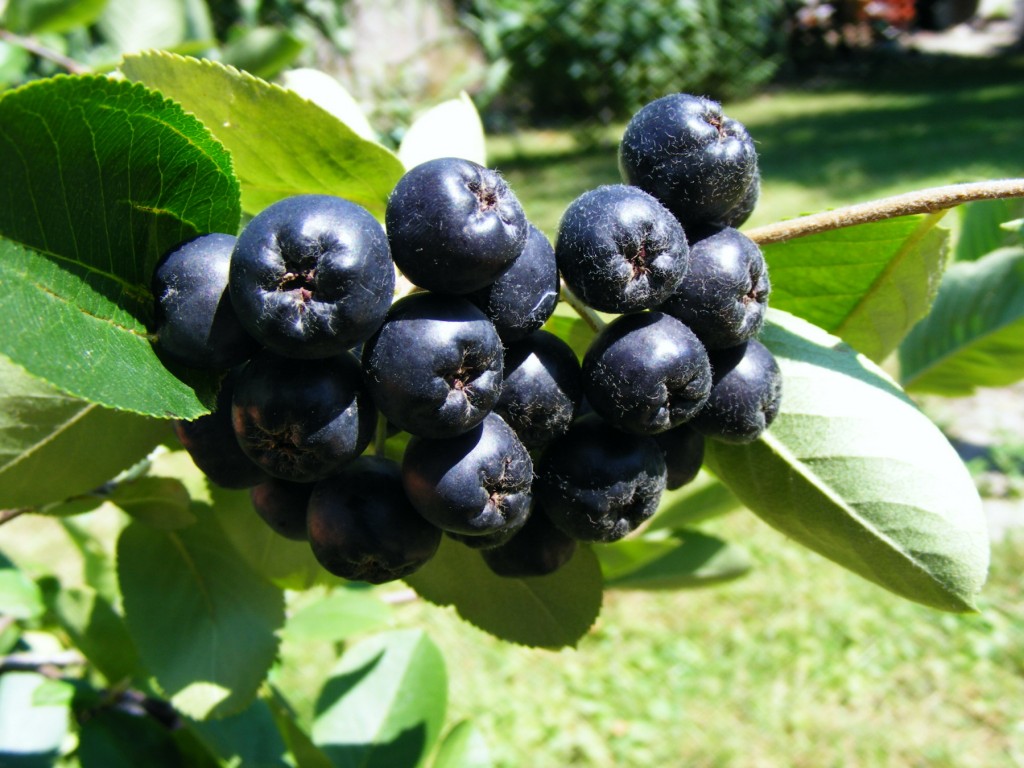
When combined with berries high in vitamin C, the benefits of chokeberry increase many times over. Therefore, it is included in the recipes of many vitamin-containing preparations. By the way, it contains twice as much vitamin P (a flavonoid that slows down the aging process) than black currants. The daily requirement of vitamin P is contained in just 3 tablespoons of chokeberry berries.. And the iodine content is 4 times higher than in raspberries, strawberries and gooseberries.
Chokeberry - benefits in the fight against ailments
Chokeberry is very popular in folk medicine. Please note that they have contraindications for certain diseases and can harm the body.
- Digestive system diseases
- Cardiovascular diseases
- Immunity
- Endocrine diseases
- Nervous system diseases
Chokeberry activates the action of gastric juice and is of great benefit to people with low stomach acidity. Some man.lantanclinic.ru berries taken shortly before meals bring noticeable relief: digestion of food speeds up and becomes easier, belching, putrid breath, and a feeling of heaviness in the stomach disappear. And with increased acidity, it aggravates unpleasant symptoms and can even cause harm.
Chokeberry is effective for the prevention of ischemic heart disease and varicose veins. It has a unique ability to normalize high blood and intracranial pressure, but is contraindicated for hypotension. Normalizes cholesterol in the blood, reduces its harm and reduces the risk of thrombosis. Gives firmness and elasticity to the walls of blood vessels. Helps with apathy and weakness.
The fruits have antiallergic and antioxidant properties, strengthen the body's immune defense. During the cold season, the benefits of chokeberry are simply invaluable. Antacyanin, which is part of it, fights the development of cancer.
Chokeberry is used for diseases of the thyroid gland, radiation sickness, Graves' disease, and thyrotoxicosis. It contains easily digestible sorbitol, therefore it is useful for diabetes mellitus, especially with damage to the capillaries.
Anthocyanins in chokeberries help fight obesity: they maintain blood glucose levels at an optimal level and prevent false feelings of hunger. 100 g of fruit contains only 55 kcal. Therefore, chokeberry has no contraindications for those who are on a diet and can be safely included in their recipes.
Chokeberry reduces emotional imbalance and will come to the rescue with overwork and sleep disturbances.
Harvesting fruits
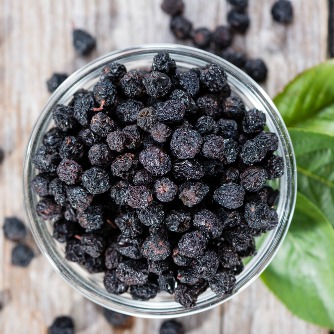
Chokeberry fruits can be kept fresh for a long time. To do this, bunches of berries are hung under the canopy of a house or barn and frozen. In this form, chokeberry retains all its taste and beneficial qualities throughout the winter. The berries are dried and dried at a temperature of at least 50°C.
Juices, jams, jelly, compotes, jellies, jams, and marmalade are prepared from chokeberries. There are a great many recipes. The method of harvesting chokeberry does not diminish its benefits.
The berries produce a thick dessert or liqueur wine of a ruby hue with a pleasant taste. Rowan juice can be safely included in recipes for blended red wines. Homemade chokeberry wine is recommended to improve digestion and for high blood pressure. And the alcohol tincture is an excellent warming and tonic drink.
Recipes
Pour 20 grams of fruit with a glass of boiling water and cook over low heat for 10 minutes. Cool and drink half a glass 4 times a day to strengthen the immune system.
For hypertension, gastritis with low acidity and hemorrhoids, it is useful to drink a quarter glass of freshly squeezed juice with a spoonful of honey 2 times a day half an hour before meals. The same effect can be obtained if you eat 100 grams of fresh or frozen berries daily.
To prevent atherosclerosis, you need to eat 200 g of berries daily for 6 weeks and take vitamin C.
For anemia and asthenia, a decoction of chokeberry, black currant and rose hips will help.
Contraindications
Chokeberry should not be consumed for thrombophlebitis, increased blood clotting, low blood pressure, high acidity and gastrointestinal ulcers.


